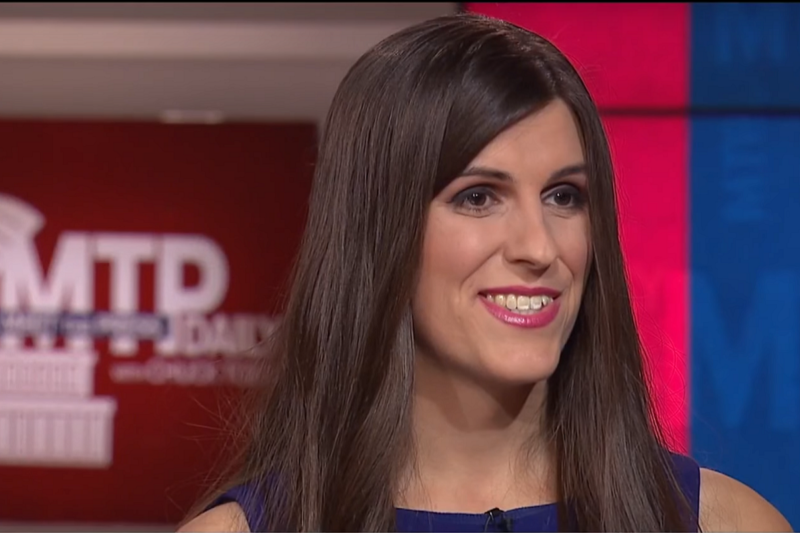Despite Electoral Gains, Transgender Community Faces Barriers to Political Involvement
While it’s critically important that the trans community remains politically active in electoral campaigns, canvassing and phone-banking can present particular challenges to trans volunteers.

The trans community has a long history of activism, and in 2017 it also saw major strides in electoral politics. That was apparent in last Tuesday’s elections when at least eight new openly trans elected officials were voted into office—an impressive and unprecedented achievement headlined in part by trans woman Danica Roem’s (D) nearly eight-point win over Del. Bob Marshall (R), the author of a failed attempt at a “bathroom bill,” in Virginia.
Historically, trans people have lacked any sizable political power. With an estimated 1.4 million trans adults in the United States, the community is too small to form a strong or cohesive voting bloc on its own. But recent GOP attacks on the already precious few rights enshrined for trans people and the groundswell of support for trans candidates like Roem and Andrea Jenkins, who was elected to the Minneapolis city council, seemed to have motivated some trans people to get involved in electoral politics.
In an interview with Rewire prior to her win, Roem mentioned that trans volunteers were a part of her campaign and are symbolic of the type of inclusive community she envisions serving. “Just today, I had at least five or six trans people knocking on doors for us and you know why? Because in our campaign we welcome everyone’s support,” she said at the time.
Jay Wu, communications manager for the National Center for Transgender Equality (NCTE), canvassed on behalf of the organization’s action fund, which endorsed Roem. They told Rewire that even if they had not worked for the NCTE they would have “gone out [to] have canvassed for her anyway.”
Wu explained that Roem’s progressive politics seemed to motivate volunteer turnout at least as much as her identity did. “A lot of the support for candidates like Danica came from trans people who were excited to see a trans person running for office,” they said, adding that other support came from progressives in the area that “wanted to see the Virginia House turn blue.”
After repeated conservative attacks on trans rights—from North Carolina’s discriminatory anti-trans HB 2 bill in 2016 to the Trump administration’s recent attempts to ban trans people from serving in the military—the trans community has faced major setbacks that may have inspired some to take political action.
“I think the federal government attacking trans people is a factor,” Wu said when asked why trans people may be getting more involved in politics. “A lot of trans people have gotten their chops organizing against bad legislation or ballot measures or what have you and that experience can translate well to running a campaign.”
While it’s critically important that the trans community remains politically active in electoral campaigns, canvassing and phone-banking can present particular challenges to trans volunteers.
“A pretty common thing that trans people will say [is], ‘I don’t want to go to door-to-door’ or ‘I don’t even want to do phones. Can I do data entry or something that isn’t public facing?’” Wu said, adding that there also seems to be a gendered dynamic to that reluctance. “For me personally, I have the dubious privilege of being transmasculine, which means that people, especially in the areas of northern Virginia that we’re canvassing in, just assume that I’m a gender-nonconforming woman which doesn’t feel great but doesn’t put me in danger.”
Public safety is another big concern for members of the trans community, who routinely see trans people murdered and harassed in the street. According to a recent survey, 27 percent of people in the United States wouldn’t want to be friends with a trans person. And with the GOP’s demonization of the trans community, canvassing could leave trans campaigners open to verbal or physical abuse. You can never know who is on the other side of the door and whether your mere presence will enrage them.
But that isn’t the only barrier that keeps some away from political involvement. Eve Freeman, a trans woman from Northern Virginia who chose not to get directly involved in Roem’s campaign, says that her deep voice was part of the reason for her decision. “Now my voice is uncomfortable and I get misgendered all the time on the phone,” she said. “It would be a disaster. I’m not an extrovert.” Freeman mentioned that she would be uncomfortable canvassing by herself, but may consider going out with someone else as long as she could stand in the back and not speak.
Freeman’s concerns are painfully common for many trans people and will remain barriers until society grows more comfortable with the idea that trans people are just average, everyday citizens like anyone else.
Campaigns should be actively looking for ways to make their operations more trans-friendly, including finding roles for trans people who don’t want to face the public. Whether this year’s political volunteerism is a temporary blip or a more sustained moment for the trans community remains to be seen, but after years of grassroots level activism, it certainly feels like trans people are responding to the recent anti-trans backlash in a big way.
